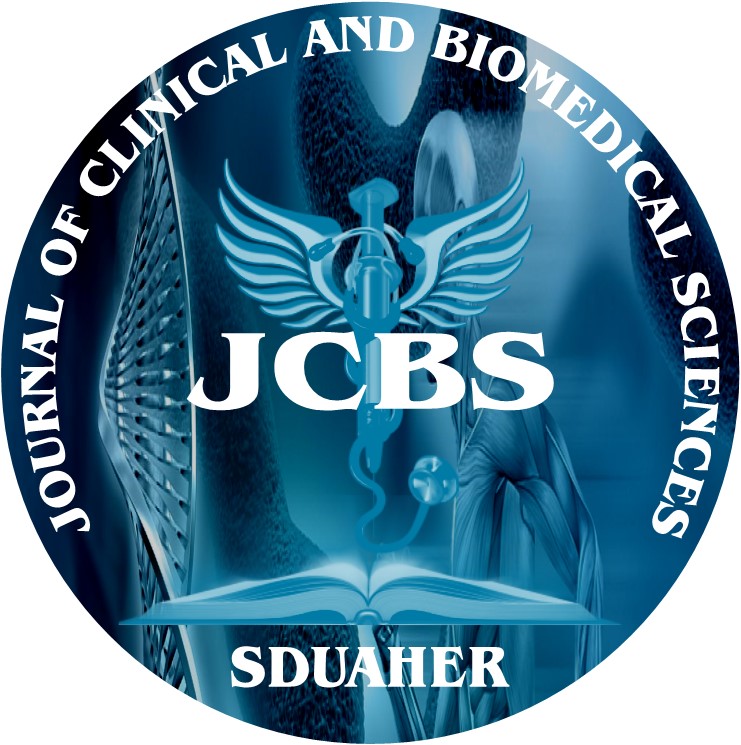


Journal of Clinical and Biomedical Sciences
Year: 2015, Volume: 5, Issue: 4, Pages: 152-159
Original Article
Pragna B Dolia, Dhanunjaya Y
Institute of Biochemistry, Madras Medical College and RGGGH, Chennai, Tamilnadu, India
*Corresponding Author
E-mail : [email protected]
Background: The physiological ratio of T3:T4 is essential to trigger the biological action since it is efficiently regulated by extrathyroidal selenodeiodinases. Thr92Ala is a common variant in the DIO2 gene which may have implication in decreased phenotypic expression. This study intends to find the effect of the SNP on CVD risk in type 2 diabetes. Materials and Methods: We included 130 T2DM patients without signs of CVD as controls and 106 CVD patients with T2DM as cases. All were genotyped for Thr92Ala of DIO2 gene. Fasting blood glucose lipid and thyroid profile, HDL subfractionations, type II deiodinase, malondialdehyde, paraoxonase, and superoxide dismutase were measured Results: The mean D2 level in Ala/Ala individuals was significantly lower than in Thr/Thr or Thr/Ala genotypes (122±39 VS 161±32ng/ml). The thyroid profile was significantly altered among Ala/Ala genotypes when compared with Thr/Thr and Thr/ Ala genotypes. There is a significant decrease in T3:T4 ratio, HDL3:HDL2 ratio and paraoxonase activity among Ala/Ala homozygote’s when compared with the/Thr+Thr/Ala genotypes. HDL3:HDL2 ratio is positively correlated with paraoxonase activity among Thr/Thr+Thr/Ala genotypes (r=0.36, p<0.05). Conclusion: Ala/Ala genotype plays a key role in thyroid dysfunction, dyslipidemia and the development of CVD risk in those which type 2 diabetes.
Key-words: DIO2 Thr92Ala; Thyroid hormones; Dyslipidemia; Oxidative stress; Type 2 diabetes mellitus; CVD risk
Subscribe now for latest articles and news.